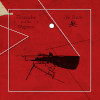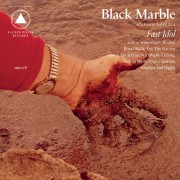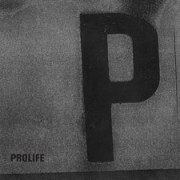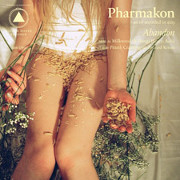On Fast Idol, LA-based Black Marble reaches back through time to connect with the forgotten bedroom kids of the analogue era, the halcyon days of icy hooks and warbly synths always on the edge of going out of tune. Harmonies are piped in across the expanse of space, and lyrics capture conversations that seem to come from another room, repeat an accusation overheard, or speak as if in sleep of interpersonal struggles distilled down to one subconscious phrase. At the same time, percussive elements feel forward and cut through the mix with toms counting off the measures like a lost tribe broadcasting through the bass and tops of a basement club soundsystem.
|
When Chris Stewart set out to write and record his third album as Black Marble, he was newly living in Los Angeles, fresh off a move from New York. The environment brought much excitement and possibility, but the distance had proved too much for the car he brought along. With it out of commission indefinitely, he purchased a bus pass and planned his daily commute from his Echo Park apartment to his downtown studio, where he began to shape Bigger Than Life. The route wound all through the city, from the small local shops of Echo Park to the rising glass of the business district, to the desperation of Skid Row. The hurried energy of the environment provided a backdrop for the daily trip. When Stewart finally arrived at his studio, he’d look through his window at the mountains and the sky, seeing the beauty that makes L.A. unique — the same beauty his fellow commuters, some pushed to the edge of human endurance, had seen. That was the headspace he was in when he began to map out the syncopated drums and staccato arpeggiation of Bigger Than Life, an ode to his new condition and a shimmering synth-pop response to its cacophony. We are very pleased to introduce you to Prolife, an anti-suicide band formed out of the ashes of death rock enthusiasts and label alumni Slug Guts. After Slug Guts’ last U.S. tour, James Dalgliesh (vocals) and Nicholas Kuceli (saxophone) returned to their flat on Lygon St. in Melbourne, Australia and decided to buy some pedals to make noisy landscapes for the modern asthmatic gentleman to lie awake to at night. Using toy keyboards (and some real ones) they developed minimal two track techno into a set of sprawling song based sets and played some shows with Jonny Telafone, Forces, Asps and Lakes. Their first proper release, this 7-inch, was recorded and produced by themselves with the help of Todd Dixon, who has specifically asked not to be named here. Margaret Chardiet was born and raised in New York City She has been making power electronics/death industrial music under the name Pharmakon for five years. As a founding member of the Red Light District collective in Far Rockaway, NY she has been a figurehead in the underground experimental scene since the age of seventeen. She points out that the environment there amongst so many other experimental artists (amongst them Yellow Tears & Haflings) inspired her to keep making increasingly challenging work. She describes her drive to make noise music as something akin to an exorcism where she is able to express, her “deep-seated need/drive/urge/possession to reach other people and make them FEEL something [specifically] in uncomfortable/confrontational ways.” Engineered by Sean Ragon of Cult of Youth at his self-built recording studio Heaven Street, Abandon is Pharmakon’s first proper studio album and also her first widely distributed release. Unlike other experimental projects, Pharmakon does not improvise when performing or recording. She is concise and exact; each song/movement is linear with a clear trajectory. Perhaps more than any other style of music, noise is a genre almost exclusively dominated by male performers. Spin Magazine is apt to point out that her,“perfectionism might explain why her recordings are few and far between — a rarity in a scene where noise bros are want to puke out hour after endless hour of stoned basement jams into a limitless stream of limited-edition tapes. Her music may be as cuddly as a trepanning drill, but it’s also just as precise: She glowers in measured silence as often as she shrieks, and every serrated tone cuts straight to the bone, a carefully calibrated interplay between frequency and resistance.” The songs on this album were all written and recorded during a turbulent three month time period during which several fundamental life changes forced her to begin living in a completely new way and in a new space. She describes the lyrical themes of this album as being about, “Loss. Losing everything. Relinquishing control. Complete psychic abandon. Blind leaps of faith into the fire, walking out unscathed. Crawling out of the pit.” |





